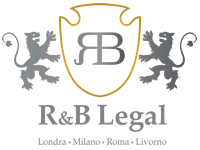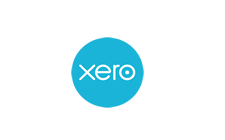How much will you save with reduced scale charges?
HMRC has reduced the VAT fuel scale charge by nearly 6% for company-provided cars. When does the new reduced rate take effect and how do you make the calculations?

Scale charge system
The purpose of the road fuel scale charge is to reflect the fuel used in your business vehicles for private trips. The figures are not completely accurate because they are based on average use calculations. In other words, you will claim input tax on all road fuel purchases paid for by your business and then declare output tax on each return according to a fixed amount that depends on the CO2 emissions of your vehicles.
HMRC has recently published rates which cover the period from 1 May 2025 to 30 April 2026, which are nearly 6% lower than the 2024/25 figures; the decrease is due to lower fuel prices at the time of the “revalorisation of the figures”.
You must use the new rates from the return period beginning on or after 1 May 2025. If you submit calendar quarter returns, you will not benefit from the reduction until the September return.
If your business has exempt sales or non-business activities, you will not fully claim input tax on your road fuel purchases.
How does it work?
If your vehicles have CO2 emissions of 225g/km or more, you will benefit from a cut of 5.7% compared to last year, i.e. from an annual use charge of £2,454 to £2,314. Many vehicles have CO2 emissions of 120g/km or less so the relevant figure will be £661, down from £702, while 180g/km CO2 vehicles go down to £1,721 from £1,825.
The above figures reflect the VAT-inclusive consideration of private fuel for a twelve-month prescribed accounting period, i.e. the output tax to declare in Box 1 of your return will apply the VAT fraction of 1/6 to these amounts.
The figures must also reflect the length of your periods, either one or three months, or twelve months if you use the annual accounting scheme.
Alternative method: mileage records
The scale charge system means that you will apply a fixed amount to each car and therefore do not need to ask your employees or vehicle users to keep a detailed mileage log, i.e. to record the actual split between business and private trips. With a mileage log system, you will apportion the input tax you claim on your fuel purchases to reflect private or non-business journeys.
As well as the time saving benefits of the scale charge method, you will pay less tax in some cases, particularly for your vehicles where the business use is low.
You cannot mix and match the two methods; you must either apportion input tax for all of your cars where there is both business and private trips or use the scale charge system instead.
You do not have to apply the fuel scale charge for your company cars which are not available for any private use, e.g. genuine pool cars. If the scale charge and mileage log calculations both give a bad outcome, you can opt to claim no input tax on your road fuel purchases, but this exclusion would apply to all vehicles, including your commercial vehicles such as vans and lorries.
Related Topics
-
Directors’ fees - can you escape PAYE?
You’ve been asked to join the board of a company in a purely advisory role. For tax and NI efficiency you want your fees to be paid to your own company. Does this arrangement fall foul of HMRC’s off-payroll rules?
-
MONTHLY FOCUS: AUTO-ENROLMENT - EMPLOYERS' RESPONSIBILITIES
What are an employer's responsibilities with regard to pension schemes and their employees?
-
Making the most of the employment allowance
Accessible to most employers, the employment allowance (EA) offers an immediate respite to a business's NI bill. How can they take advantage, and what are the pitfalls?






 This website uses both its own and third-party cookies to analyze our services and navigation on our website in order to improve its contents (analytical purposes: measure visits and sources of web traffic). The legal basis is the consent of the user, except in the case of basic cookies, which are essential to navigate this website.
This website uses both its own and third-party cookies to analyze our services and navigation on our website in order to improve its contents (analytical purposes: measure visits and sources of web traffic). The legal basis is the consent of the user, except in the case of basic cookies, which are essential to navigate this website.